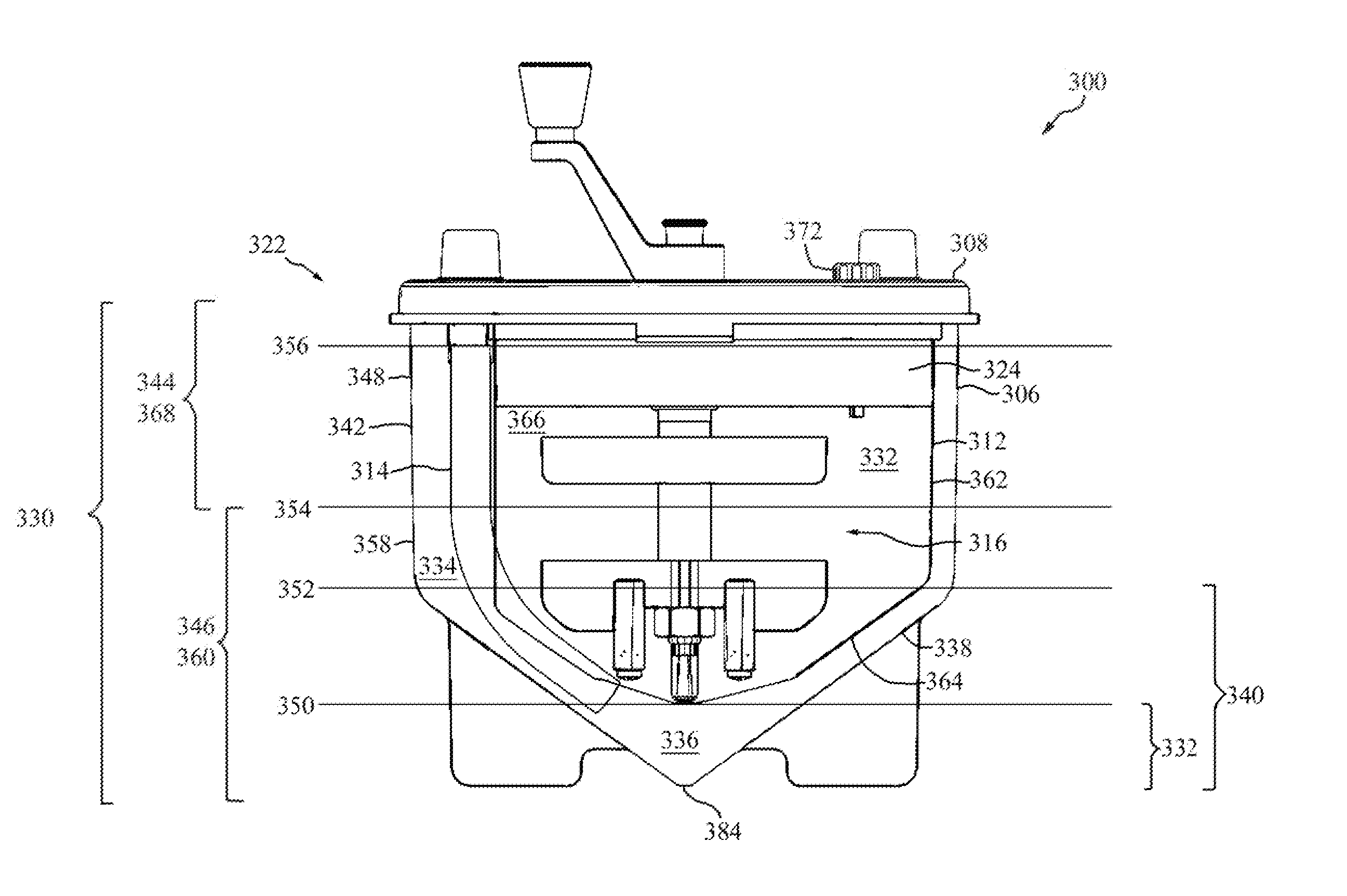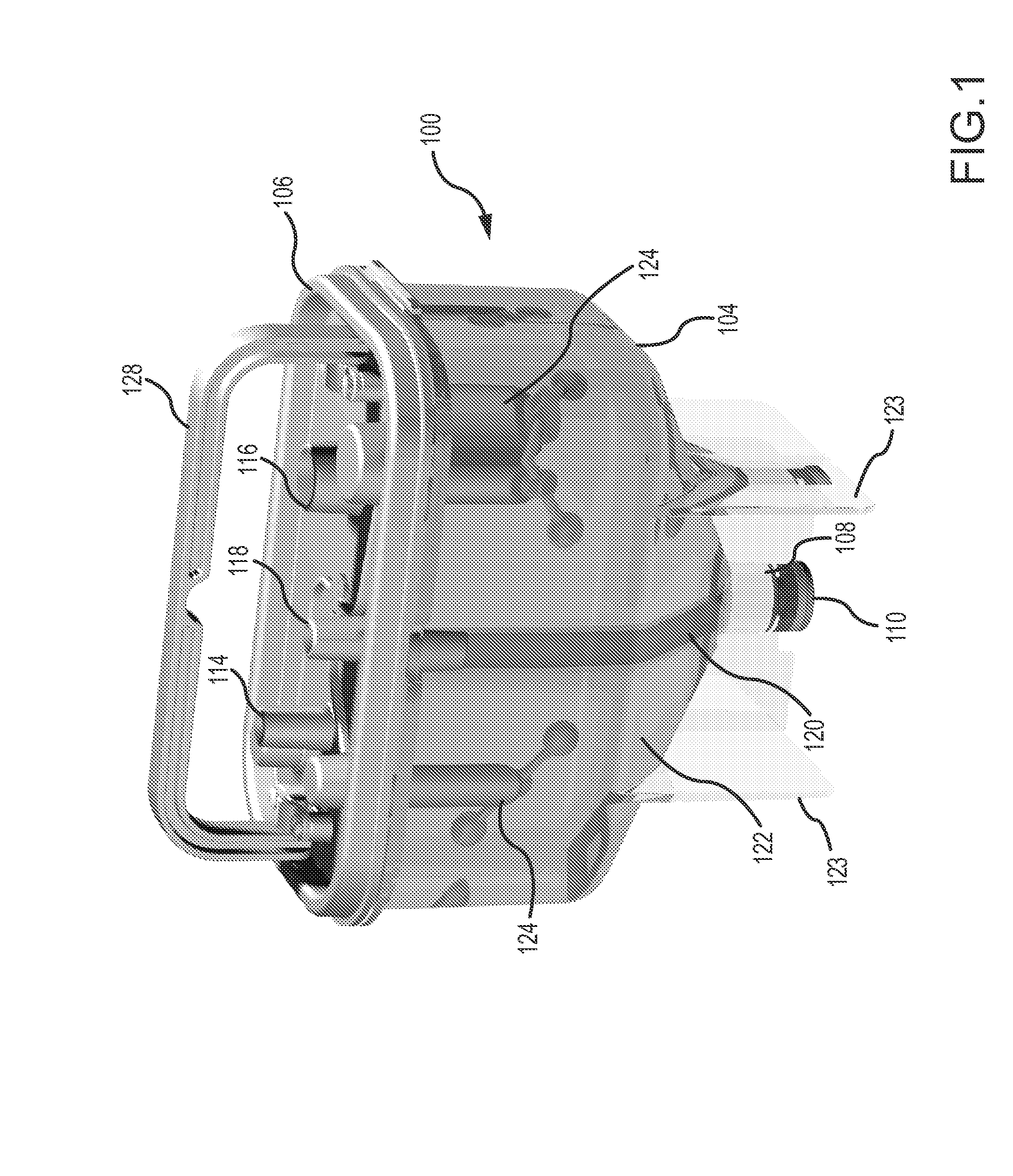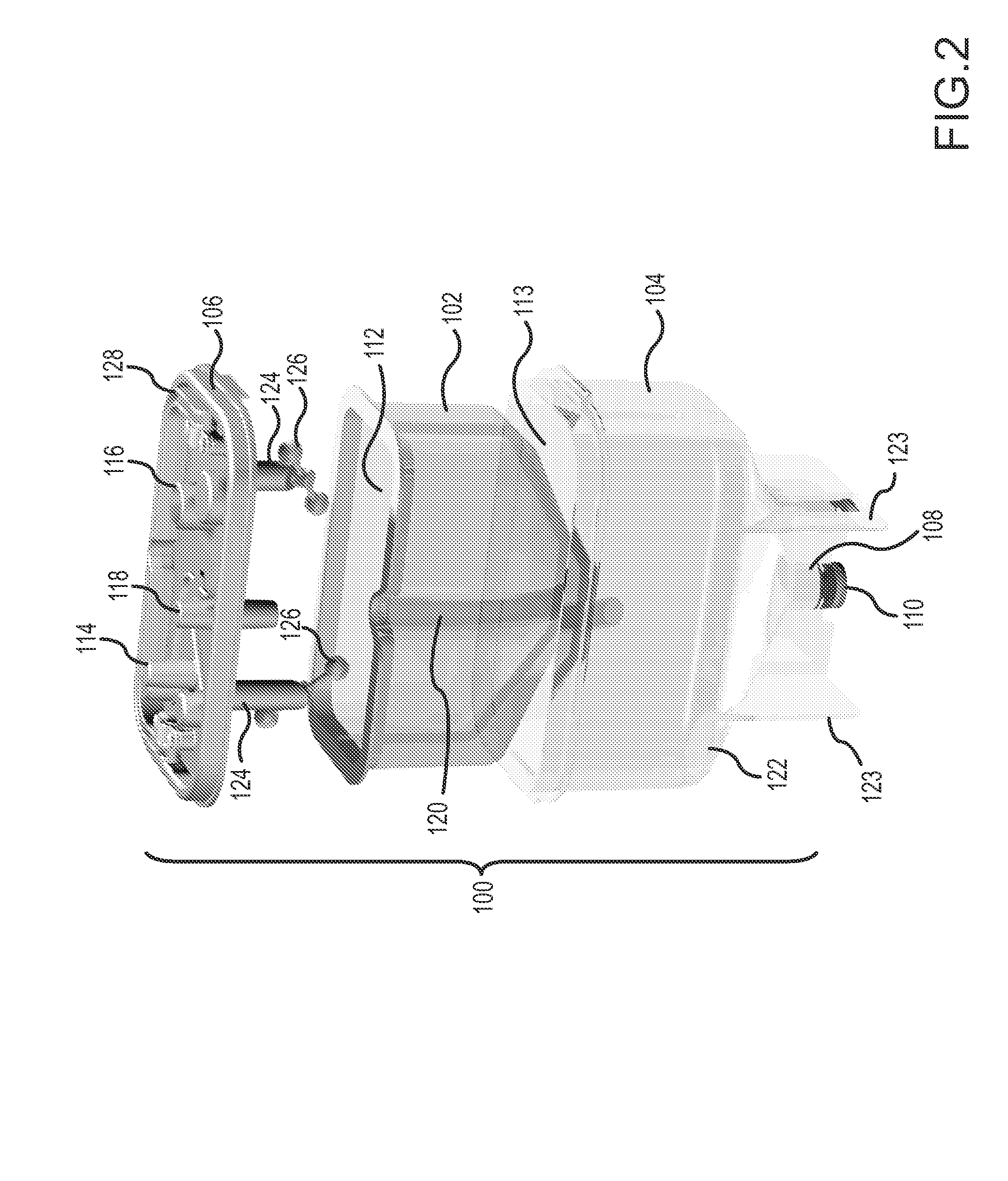Method and apparatus for processing adipose tissue
a technology for adipose tissue and processing equipment, applied in the field of human biological material processing, can solve the problems of significant equipment and process design and operation limitations, significant opportunities for error or contamination, multi-step processing in portable containers, etc., and achieve the effect of convenient addition and removal of materials, rapid identification and determination of wash liquid quantity
- Summary
- Abstract
- Description
- Claims
- Application Information
AI Technical Summary
Benefits of technology
Problems solved by technology
Method used
Image
Examples
Embodiment Construction
[0091]FIG. 1 shows one embodiment of a tissue collection and processing apparatus, designated as apparatus 100. FIG. 2 shows the same apparatus 100 as in FIG. 1, but illustrated in an exploded view of some of the components. As shown in FIGS. 1 and 2, the apparatus 100 has a mesh bag filter 102 disposed within an internal containment volume of a container. The container is comprised of a rigid shell 104 and a rigid top 106. The top 106 is sealed to the top of the shell 104. The shell 104 may be made, for example, from a transparent plastic composition. The lid 106 may be made, for example, from a plastic composition. Disposed at the bottom of the shell 104 is a collection chamber 108 and an extraction port 110. The extraction port 110 comprises a sealing mechanism that is manipulable to extract material from inside the collection chamber 108. The sealing mechanism may, for example, comprise a silicon rubber septum or diaphragm that may be penetrable by a hypodermic needle to extract...
PUM
| Property | Measurement | Unit |
|---|---|---|
| volume | aaaaa | aaaaa |
| volume | aaaaa | aaaaa |
| volume | aaaaa | aaaaa |
Abstract
Description
Claims
Application Information
 Login to View More
Login to View More - R&D
- Intellectual Property
- Life Sciences
- Materials
- Tech Scout
- Unparalleled Data Quality
- Higher Quality Content
- 60% Fewer Hallucinations
Browse by: Latest US Patents, China's latest patents, Technical Efficacy Thesaurus, Application Domain, Technology Topic, Popular Technical Reports.
© 2025 PatSnap. All rights reserved.Legal|Privacy policy|Modern Slavery Act Transparency Statement|Sitemap|About US| Contact US: help@patsnap.com



